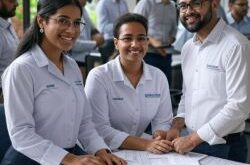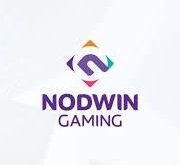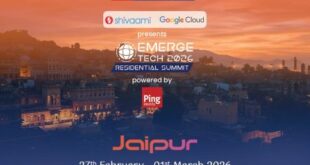Mumbai/Pune, 23 July 2025: MIT World Peace University (MIT-WPU) successfully hosted the 2nd National Scientists’ Round Table Conference (NSRTC 2025) in Pune, gathering over 70 of India’s most distinguished scientists, researchers, and thought leaders including a total of 36 Shanti Swarup Bhatnagar Awardee and Padma awardee scientists. The three-day conference created a fertile ground for interdisciplinary collaboration, intellectual exchange, and policy-shaping dialogue.
The conference revolved around four transformative themes—Artificial Intelligence, Advanced Materials and Processing, Digital Transformation and Sustainability, and Healthcare, Pharma and Biotechnology—each critically linked to India’s developmental aspirations. These discussions were further enriched by thought sessions exploring the “Premise of Nobel Prize–Inspired Research” and the convergence of science and spirituality.
The Artificial Intelligence track featured discussions on AI’s convergence with cryptography, quantum science, astronomy, and education. Experts debated the possibility of AI generating disruptive scientific theories and explored its future in 6G networks and multilingual applications.
The Advanced Materials and Processing sessions emphasized self-reliance through nanotechnology, solar energy, 2D materials, and metal circularity. Notable research on “Black Gold” nanomaterials for CO₂ reduction and calls to move beyond lithium-ion batteries underscored India’s push for energy sustainability.
In the Healthcare, Pharma, and Biotechnology theme, global experts explored AI-driven drug discovery, pandemic preparedness through the One Health approach, and strategies to reverse Type 2 diabetes via lifestyle interventions. Discussions also touched on brain drain, biomaterials, regenerative medicine, and diagnostics for diseases such as cancer, HIV, and tuberculosis.
Sessions under Digital Transformation and Sustainability included talks on green chemistry, innovations in chemical manufacturing, and India’s nuclear energy potential. Discussions also covered agricultural resilience through salt-tolerant rice, and the correlation between energy consumption and the Human Development Index (HDI).
The conference also underscored the importance of ethical and philosophical grounding in scientific pursuits. In a joint reflection, Dr. Vishwanath D. Karad, Founder of MIT Group of Institutions, and Prof. Ashutosh Sharma, Former Secretary, Department of Science and Technology (DST), Government of India, emphasized the synergy between science and spirituality and called upon students to apply science for societal transformation.
The event concluded with a valedictory ceremony graced by distinguished guests, including Prof. G.D. Yadav, Emeritus Professor and Former Vice-Chancellor, ICT, Mumbai; Dr. Shekhar Mande, Former Director General, CSIR, New Delhi; Prof. Sagar Mitra, IIT Bombay; and Prof. Ashok Joshi, Founding Director, Microlin Inc., USA, along with the conference convenors Dr. Bharat Kale, Dr. Anup Kale, and Prof. Siddharth Chakrabarti.
Dr. Rahul V. Karad, Executive President of MIT-WPU, during the conference said stated that research is the foundation of national development, and that through NSRTC, the university aims to inspire young minds to think originally and pursue impactful careers in science and innovation. He also noted that it was encouraging to see over 600 students actively engaging with more than 100 leading scientists from across the country.
The event marked a meaningful step toward building a future-ready scientific community one that can help shape India’s journey to becoming a global leader in innovation and knowledge. The ideas shared, the collaborations sparked, and the energy of the participants have laid the groundwork for lasting impact.
 Newspatrolling.com News cum Content Syndication Portal Online
Newspatrolling.com News cum Content Syndication Portal Online







